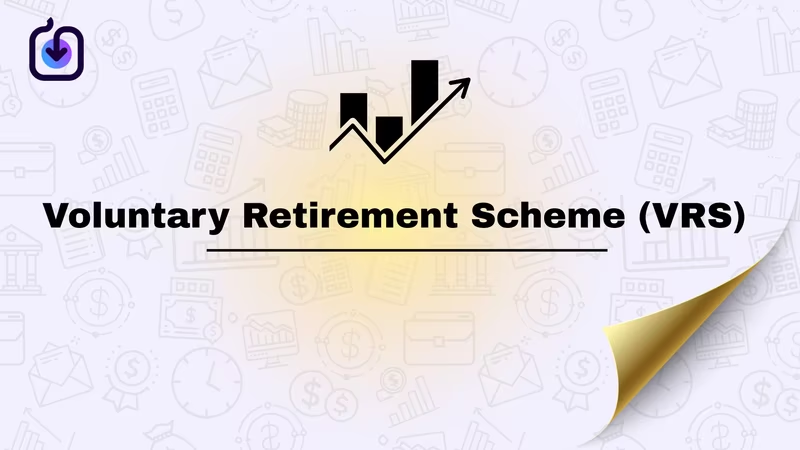VRS is a structured program that allows employees to retire from their service before the official age of retirement. The VRS full form is Voluntary Retirement Scheme.
This option is provided voluntarily by companies or government departments to help employees choose early retirement while ensuring fair financial benefits.
What is VRS?
To understand VRS meaning, it refers to a mutually beneficial arrangement where an employee can retire early and receive a lump sum compensation package.
This package generally includes provident fund, gratuity and other eligible dues. Employers introduce such schemes to streamline their workforce, reduce operational costs and improve efficiency without resorting to layoffs.
For instance, if an employee working in a public sector bank has served for 25 years and wishes to retire early to pursue personal goals, they can apply under the VRS Scheme for State Government employees or the respective institutional policy.
The compensation is typically calculated as 45 days’ salary for each completed year of service or based on remaining months until retirement, whichever is higher.
Eligibility and Rules
The VRS Scheme for State Government employees and the VRS Rules for Central Government employees are designed under specific service regulations.
Generally, an employee must be above 40 years of age. In addition, the minimum service required for VRS is usually 10 years, although certain departments may have additional conditions.
Government approval is mandatory before implementing such a scheme, especially in public sector undertakings.
Tax Benefits and Restrictions
Under Section 10(10C) of the Income Tax Act, compensation up to ₹5 lakh received under VRS is exempt from income tax, subject to conditions. Once an employee opts for VRS, they cannot join another organisation that is part of the same management.
In essence, the VRS represents an employee-friendly initiative that balances personal choice and organisational restructuring.










